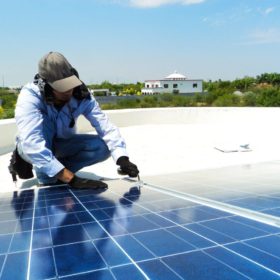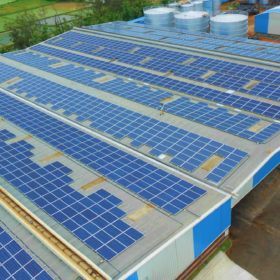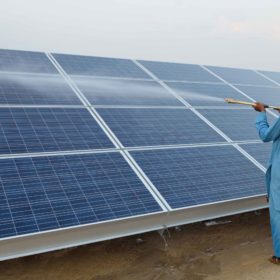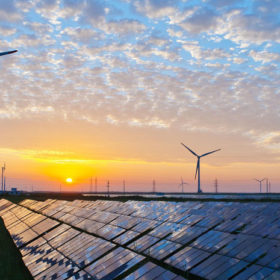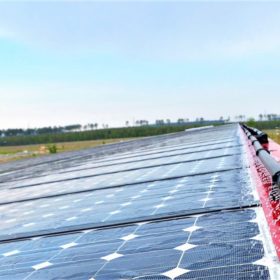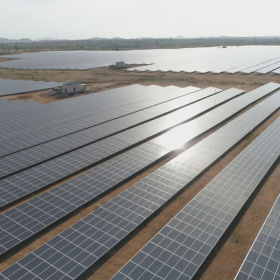CEL extends EOI submission deadline for solar EPC empanelment
Interested solar EPC contractors can now submit expressions of interest till April 30 to get empaneled with the state-owned Central Electronics Limited.
SBI Chandigarh tenders remote monitoring based rooftop solar power systems
April 10 is the last date to submit technical bids for installation and commissioning of the rooftop solar systems with battery backup at State Bank of India’s branches, offices and residences in Chandigarh region.
Malaysian firm acquires 37.5% stake in Rising Sun Energy
Yinson will pay Rs 554 million (RM32 million) for the stake, and additional funding of Rs 600 million (RM35 million) to repay certain outstanding liabilities of the Indian independent power producer which has two plants in the massive Bhadla Solar Park.
Covid-19: The right treatment for India’s solar sector with comorbidities
This article talks about the areas the government needs to address both immediately and in the long run to help the ailing solar industry in the country.
Cooling down PV panels with water
France’s Sunbooster has developed a technology to cool down solar modules when their ambient temperature exceeds 25 degrees Celsius. The solution features a set of pipes that spread a thin film of water onto the glass surface of the panels in rooftop PV systems and ground-mounted plants. The cooling systems collect the water from rainwater tanks and then recycle, filter and store it again. The company claims the technology can facilitate an annual increase in power generation of between 8% and 12%.
Covid-19 Impact: Electricity demand has dipped by 25% since mid March
Disruptions in the industrial and commercial activities due to Covid-19 lockdown have further dented electricity demand in India which already registered a discernible decline in annual electricity demand. India’s electricity demand in the first 11 months of 2019-20 (April 2019-February 2020) grew by 2.2% (to 1191 billion units) compared with 5.4% annual growth in the same months of previous year.
SECI invites queries online as pre-bid meetings get cancelled
Prospective bidders for 34 MW solar project in Telangana and 14 MW solar plus storage project in Ladakh have been asked to submit any queries online as pre-bid meetings get cancelled due to Covid-19 lockdown. Further, bidding deadline for Ladakh project has been revised to June 1.
NTPC tenders inverter-transformer package for solar project in Maharashtra
Bidding closes on April 29 for supply and installation of minimum cumulative capacity of 23 MVA, which is to be installed for the power generator’s Solapur solar project in the state of Maharashtra.
Sterlite Power gets GE, Tata onboard Green Energy Corridor project in Gujarat
The project involves laying over 300 km of 765 kV double-circuit transmission lines connecting 765/400 kV Lakadia substation to Vadodara substation in Gujarat.
Can solar industry tide over the Covid-19 crisis?
Planning ahead is crucial to ensure the Indian solar industry bounces back quickly and the slowdown is not carried forward to 2021-22, say BloombergNEF analysts even as they estimate 75% fall in PV imports in the first quarter of year 2020 over the previous quarter and revise annual capacity addition forecasts.
